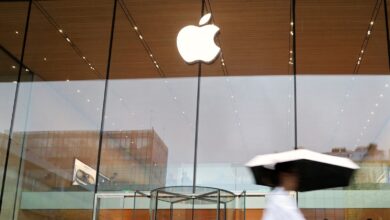What is Project Stargate? Why this $500 billion AI initiative could herald a ‘foundational shift’


This week, US President Donald Trump announced a joint venture between OpenAI, Japanese conglomerate SoftBank, and Abu Dhabi’s AI-focused sovereign wealth fund MGX, to invest up to $500 billion over multiple years in US data center dedicated to artificial intelligence.
Trump appeared at the White House with OpenAI CEO Sam Altman, SoftBank Chairman Masayoshi Son and Oracle founder Larry Ellison. Oracle is one of the technology partners for the joint initiative – called Stargate – along with Microsoft, ARM Holdings and Nvidia.
Also: Anthropic warns of AI disaster if the government does not regulate in 18 months
The funding is intended to deliver “giant” data centers of 500,000 square feet, building on the huge amounts of capital spending planned by the biggest tech companies.
According to one Wall Street analyst, Jackson Ader of brokerage firm KeyBanc Capital Markets, “Capital spending on hyperscalers” — i.e. Amazon, Alphabet, Microsoft, Oracle, Meta and Alibaba — ” will be $286.5 billion in 2025 and $308.8 billion in 2026, after making some adjustments to consensus estimates.”
Given that, Ader wrote, “It depends on who else contributes to the project [Stargate]Incremental investment is likely to be more muted.”
While this year’s nearly $300 billion will not all be dedicated to AI, it is expected that AI will receive an increasing share of technology spending; After all, AI is driving more and more cloud computing services, and Nvidia GPU chips for AI training and inference are among the most expensive technology purchases.
But if the $100 billion initially planned for Stargate is a drop in the bucket compared to all the planned spending, it’s still encouraging for Ader and others who have forecast High levels of AI spending for years to come.
“Stargate adds fuel to the narrative that we are still in the early stages of building the necessary investment capital for AI and signals that the new administration will likely greatly supports the investment and energy requirements of AI platform change.” Naji this week in a letter to his clients.
Also: Samsung and Google’s AI partnership is a bigger win than you think — and I’m worried for Apple
Similarly, Wedbush Securities hardware analyst Matthew Bryson, who follows Nvidia and other chipmakers, wrote in a note to clients that Stargate “emphasizes[s] There is a seemingly endless and ever-increasing stream of capital being invested in AI.”
Many questions remain regarding this initiative.
SoftBank’s son is responsible for assembling the initial $100 billion, and it’s unclear where that money will come from.
In a note to clients, technology analyst Brad Zelnick of investment bank Deutsche Bank noted that a big question is “the ownership and financial structure of the new venture, its sources and the amount of money committed.” Existing funding, future funding plans and funding methods. it will be factored into each company’s financial results.”
Also: Have a genealogical mystery? How I use AI to solve family puzzles
Others have also raised questions, including Trump’s efficiency boss Elon Musk. On
AI critic Gary Marcus considered on Substackcall it “AI match”.
“Elon thought Sam was playing the same trick they used to play together,” when the two were founding OpenAI and hadn’t made any money yet but told everyone they did. “He may be right,” Marcus added, “neither of them are known for being absolutely straightforward.”
Deutsche Bank’s Zelnick added further questions. How much of the new data center can be dedicated to AI training and how much to inference? How will Stargate company make money from it? Will it change the amount of capital Microsoft has to invest in OpenAI, and if so, will it also change how much of OpenAI’s revenue and profits Redmond will take in?
Zelnick is adamant about one thing: The venture is a big win for Oracle’s Ellison in its competition with cloud giants.
Also: OpenAI’s O3 is not yet AGI, but it has done what no other AI has done
“This is a win for Oracle, if for no other reason than to further strengthen OCI’s position [Oracle Cloud Infrastructure] the future relevance of AI,” Zelnick wrote.
“The more we learn, the more we appreciate the unique challenges of addressing the performance and scale needs of AI workloads and see this announcement as further endorsement,” he wrote. for OCI capabilities.”




